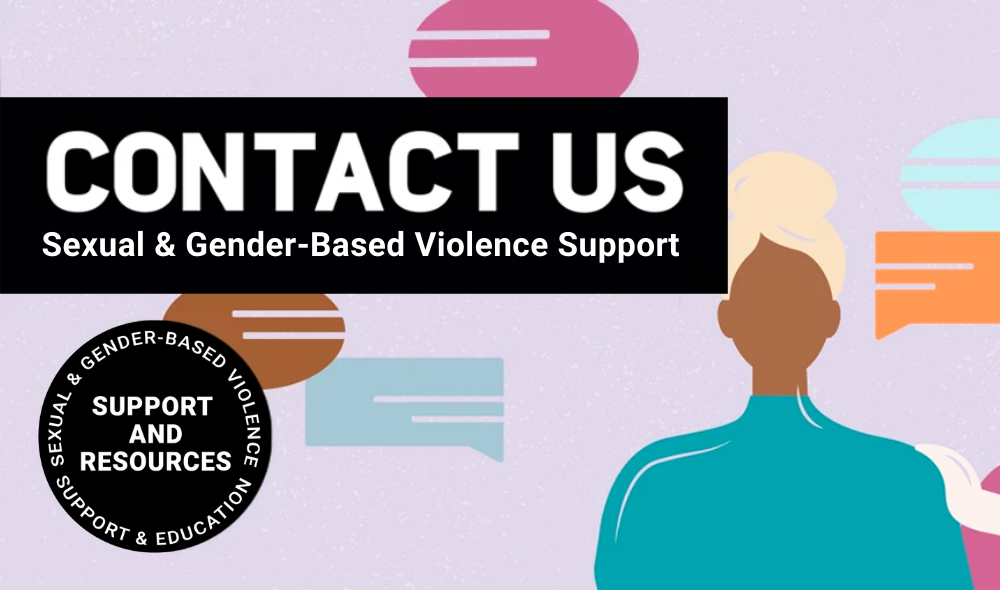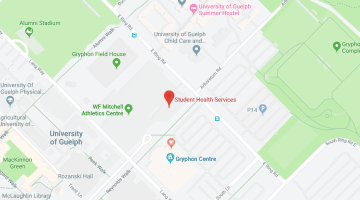
This office provides leadership in prevention and intervention programs to support survivors of sexual and gender-based violence at the University of Guelph, and to enhance the conditions and likelihood of personal and academic success. This includes ensuring appropriate coordination of care and individual support for students and communicating with appropriate partners, both on and off campus.
The office is committed to the following:
- Providing education and support that are trauma-informed, anti-oppressive, survivor-centric, and rooted in harm-reduction philosophies
- Supporting student survivors of sexual and gender-based violence including coordinating accommodations, system navigations, safety planning, and referrals
- Providing preventative education and training to the University of Guelph campus community
SGBV Support Coordinators:
The Sexual and Gender-Based Violence Support Coordinators works with survivors to support them in coordinating support and resources following experiences of sexual and gender-based violence. They also provide consultation services to faculty and staff responding to disclosures of sexual violence. Anyone can refer a friend or themselves to a Coordinator by emailing svinfo@uoguelph.ca
Support can help to some extent with a survivor's healing journey and may include the following:
- Coordinating academic accommodations
- Referrals to physical and mental health services
- Coordination of care
- Discussing reporting options
- Safety planning
- Additional support identified by survivors
You do not need to disclose or make a report to access support. Students are also welcome to bring a support person with them to the planning or support meeting.
For an introduction to the Support Coordinators' services and what to expect when you meet with them, please review this video. [2]
You can reach the SGBV Support Coordinators by emailing svinfo@uoguelph.ca
Melissa Conte (she/her), Sexual and Gender-Based Violence Support Coordinator
On Parental Leave until January 2027
Melissa Conte has over 20 years of experience in the areas of gender-based violence prevention, anti-violence education, and harm reduction practices. Before joining Student Wellness Services at the University of Guelph, she held different roles at Carleton University, contributing to social justice and anti-violence efforts across Graduate Studies, the Department of Sociology, OPIRG, and the Department of Equity and Inclusive Communities.
Melissa is currently pursuing a Ph.D. in Sociology at Carleton University. Her dissertation uses collaborative and participatory methods to examine how grassroots activism and community resistance are practiced by the families of MMIWG2s in Canada. She also holds a Masters in Sociology from Carleton and a Bachelor of Arts (Honours) in Sociology and Gender Studies from Bishops University. Melissa is currently completing a trauma certificate, reflecting her commitment to lifelong learning and promising practices in the field.
She supports survivors of sexual and gender-based violence by coordinating services, facilitating access to resources, and arranging academic and other accommodations. She also provides consultation to faculty and staff responding to disclosures, helping to foster campus-wide cultures of care and consent.
Walking into Melissa’s office, you are met with warmth, care, and a space where you are believed, affirmed, and supported. Using trauma-informed approaches, she is committed to seeing students succeed and heal at their own pace and on their own terms.
Rashida Odumoye (she/her), Sexual and Gender-Based Violence Support Coordinator
Rashida Odumoye is a dedicated Registered Psychotherapist with over four years of experience in the mental health field. She holds a degree in Biomedical Science from the University of Guelph and a Master of Arts in Counselling Psychology from Yorkville University.
Rashida has supported individuals, children, and families through a range of challenges including anxiety, depression, trauma, and life transitions. She has specialized training in trauma-informed care, with a particular focus on complex PTSD and sexual and gender-based violence. Rashida has worked extensively with individuals impacted by these experiences in the Guelph community and has also supported respondents through the Partner Assault Response program.
She provides trauma-informed support, helps individuals navigate resources, and coordinates academic and other accommodations. She also offers consultation and guidance to faculty and staff responding to disclosures of sexual and gender-based violence on campus.
Rashida is committed to creating a safe, inclusive, and non-judgmental space where individuals feel heard, supported, and empowered to access the help they need. As a former student, she is driven to bring a compassionate, collaborative, and student-centered approach to all aspects of her work.
Christina Kingsbury (she/they), Sexual and Gender-Based Violence Support Coordinator
Christina Kingsbury is a queer white settler and Registered Social Worker with three years of experience supporting student survivors of sexual and gender-based violence in post-secondary settings, and over 20 years of experiencing working at the intersections of justice and healing as a community-engaged artist and educator. She has held roles in gender justice work as a Counsellor/Advocate, Navigator and Support Coordinator for student survivors at Wilfrid Laurier University and the University of Guelph.
Christina holds a Masters in Social Work from Wilfrid Laurier University and a Bachelor of Fine Arts from York University and has completed specialized training in trauma healing and politicized approaches to therapeutic work, with a special focus on supporting survivors of sexual and gender-based violence.
Their approach to supporting survivors is rooted in values of solidarity and compassion, and they always strive to move at the speed of trust in respecting survivors' unique experiences, agency and needs. Christina's role involves supporting survivors by coordinating care and services, sharing resources, advocacy and accommodation support, and understanding reporting and justice options. She also provides consultation to staff and faculty responding to disclosures of SGBV experiences.
Christina brings warmth, presence and a collaborative trauma-informed approach to their work with survivors, and dedication to values of social justice and transformation.
